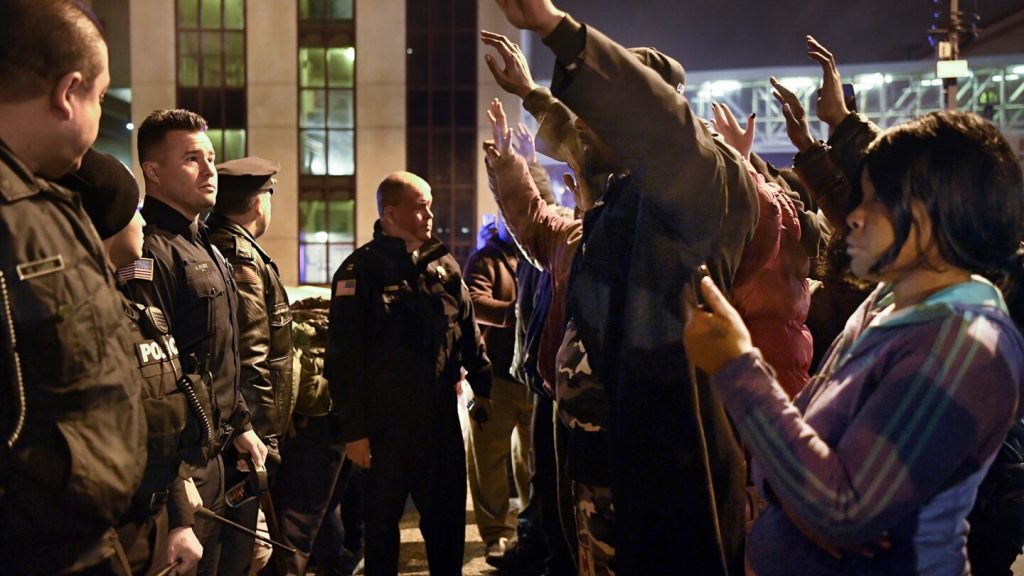Jameek Lowery, a 27-year-old Black man, entered the Paterson police headquarters in a state of panic during a mental breakdown. He was having an anti-police rant on Facebook Live, asking for help while alleging that the police were trying to kill him. Lowery was then transported to the hospital where he arrived unconscious, handcuffed to a gurney, and died two days later. His family and activists believe that police acted with excessive force due to his race. Lowery was among over 330 Black people who died after being stopped by police using tactics that are not supposed to be deadly, such as physical restraint.
The investigation into a decade of such deaths found that Black people face discrimination in all aspects of the criminal justice system, leading to high rates of unjustified police stops, arrests, and use of force. Lowery’s case highlights the challenges families face in holding officers accountable and obtaining information about incidents involving the use of force that are easier to obscure than shootings. The high-profile police killings of individuals like George Floyd and Freddie Gray have sparked nationwide protests and a conversation about police interactions with people of color.
Paterson, New Jersey, a city with a troubled history of racial unrest, has seen repeated tensions between Black residents and the police force. Over the years, the force has faced criticism for various incidents, including allowing a rogue group of officers to form a “robbery squad” that beat residents and stole their money. Since the start of 2019, city police have been involved in fatal shootings and deaths after restraint incidents. Black residents in Paterson have long experienced racial profiling and harassment by the police, leading to a significant level of distrust towards law enforcement.
Jameek Lowery’s background showcased a life filled with challenges, including a bipolar disorder diagnosis and involvement with illicit drugs. Despite these difficulties, he was a music lover and aspiring singer. Lowery had complained to his family about police harassment and expressed a desire to move away to escape the constant fear of arrest. His 911 call seeking help on a January morning led to a tragic series of events that ended with his death. His family and activists have questioned the official explanation of his death and called for accountability.
The response to Lowery’s death in the community led to widespread protests and demands for justice. The official report stating that his death was not a result of police force but rather a medical event caused further outrage among residents. Activists and family members hired experts to investigate and review evidence that contradicted the official findings. Calls for police reform in Paterson intensified, leading to an outside audit of the police department, which highlighted issues of trust, use-of-force policies, and oversight of officers.
State intervention in the form of taking over the Paterson police force was prompted by continued complaints of discrimination and distrust from communities of color. The attorney general acknowledged the deep-rooted issues within the force and the need for reform. Activists and community members expressed skepticism about the ability of the police to reform themselves and called for broader structural changes. Jameek Lowery’s family and supporters continue to seek justice and answers about his tragic death, highlighting the ongoing struggle for accountability and reform in policing.















